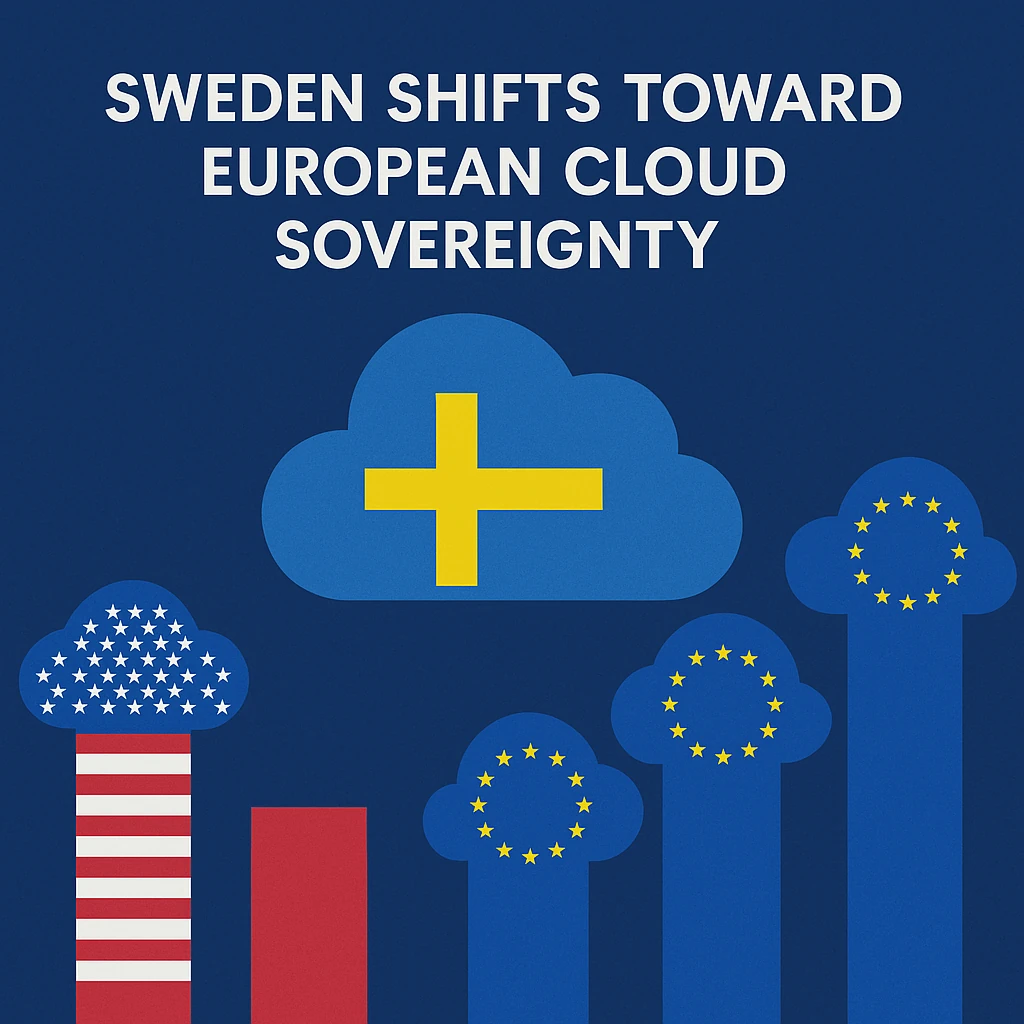
In a move that underscores the growing awareness of digital sovereignty across Europe, Sweden’s Minister for Public Administration, Erik Slottner (Christian Democrats), has announced a new national cloud policy aimed at reducing dependence on U.S. cloud service providers.
This initiative is part of the Swedish government’s broader digitalization strategy and follows increasing pressure from domestic cloud companies and policy experts who warn of the legal, security, and strategic risks of over-reliance on foreign—particularly American—tech giants.
“It’s important that we break the one-sided dependency,” Slottner told Svenska Dagbladet after meeting with representatives from four Swedish cloud companies this week.
A Growing Awareness
The meeting, initiated by the domestic cloud sector, focused on three key issues: how to help European cloud providers gain market share, how to strengthen data security, and how to remove barriers to growth for local vendors.
One of the major challenges, according to the participants, is the lack of visibility and market awareness of Swedish and European cloud alternatives. While American providers dominate due to their scale and aggressive lobbying efforts, many smaller European players lack the marketing budgets or political influence to compete on equal footing.
“There’s often a lock-in effect. It’s complicated to switch providers once you’ve committed to one of the major U.S. platforms,” Slottner noted.
Despite these challenges, Slottner emphasized that the goal is not to eliminate American providers, but to diversify. “The situation isn’t acute,” he said, “but strategic imbalance is never good.”
No Change Without Procurement Reform
Industry figures such as Johan Christenson (Cleura) and Daniel Melin (Safespring), both participants in the meeting, pointed to public procurement rules as a key barrier to change. They argue that without reforming Sweden’s implementation of the Public Procurement Act (LOU), European providers will continue to be sidelined in favor of entrenched U.S. incumbents.
Through initiatives like Eurostack, Cleura and Safespring advocate for a target where at least one-third of IT services procured by the public sector come from European vendors. The logic is simple: stable demand fosters innovation and allows local companies to grow into globally competitive alternatives.
“We must ensure there is demand if we are to build sustainable and innovative services in the long run,” said Christenson.
The Danish Model and Economic Impact
Sweden isn’t alone in rethinking its digital dependency. Denmark’s digital minister, Caroline Stage Olsen, has launched a high-profile shift away from Microsoft Office to open-source alternatives like LibreOffice—a move seen as both symbolic and strategic.
Slottner sees value in similar ambitions. He noted that in 2023, the European Union paid over €268 billion to U.S. tech firms—more than half of Sweden’s GDP. Redirecting even a portion of that spending to European providers, he argues, could create hundreds of thousands of jobs.
“It’s not just about data control. There’s a massive economic opportunity here,” he said.
Criticism and Political Debate
The government’s digital strategy has not gone unchallenged. Former Member of the European Parliament Gunnar Hökmark (Moderate Party) recently criticized the strategy for failing to address geopolitical realities. Slottner rejected this critique, calling it “unfair and off target.”
“To claim the strategy ignores geopolitical developments is simply not true. Our cloud policy and security considerations are clear and central,” he said.
A Policy in Progress
While the cloud policy is still under development, Slottner insists it will provide concrete guidance for how Sweden can promote digital sovereignty without compromising innovation or efficiency.
“We don’t have all the answers yet,” he admitted.
“But the goal is clear: to build a more balanced, resilient, and sovereign digital infrastructure for Sweden and for Europe.”

